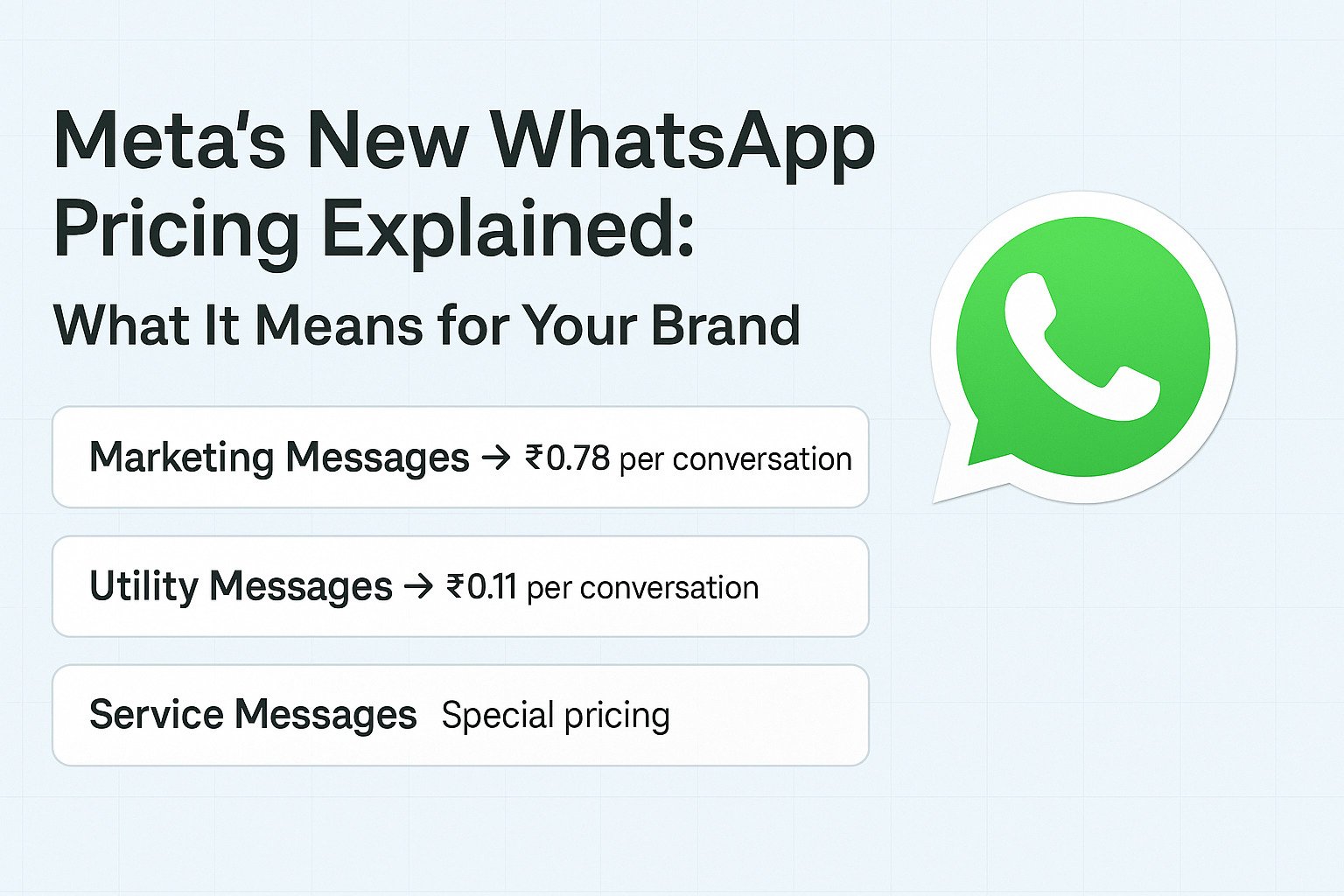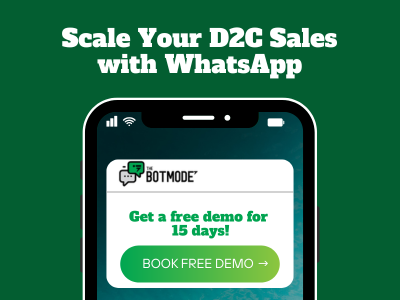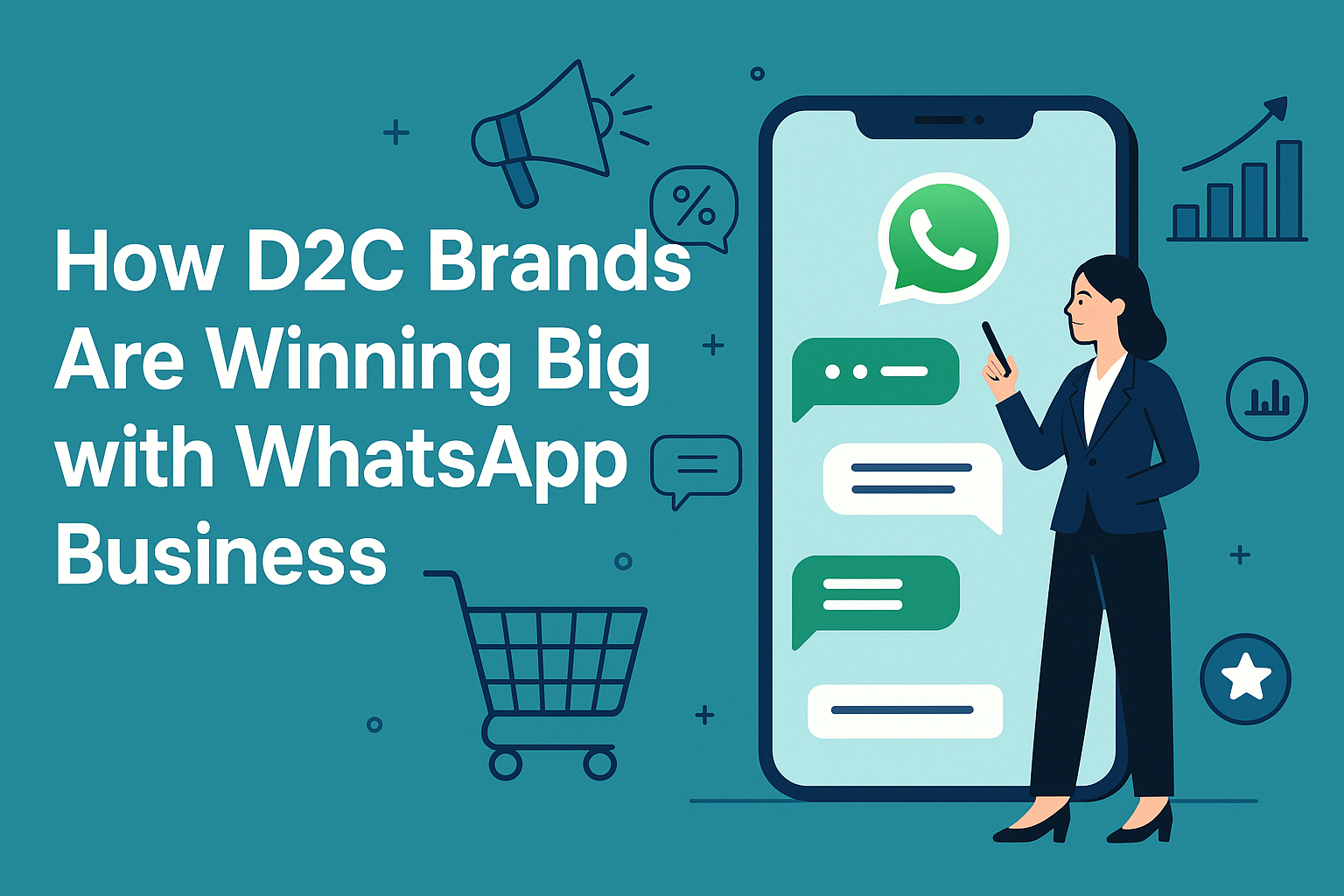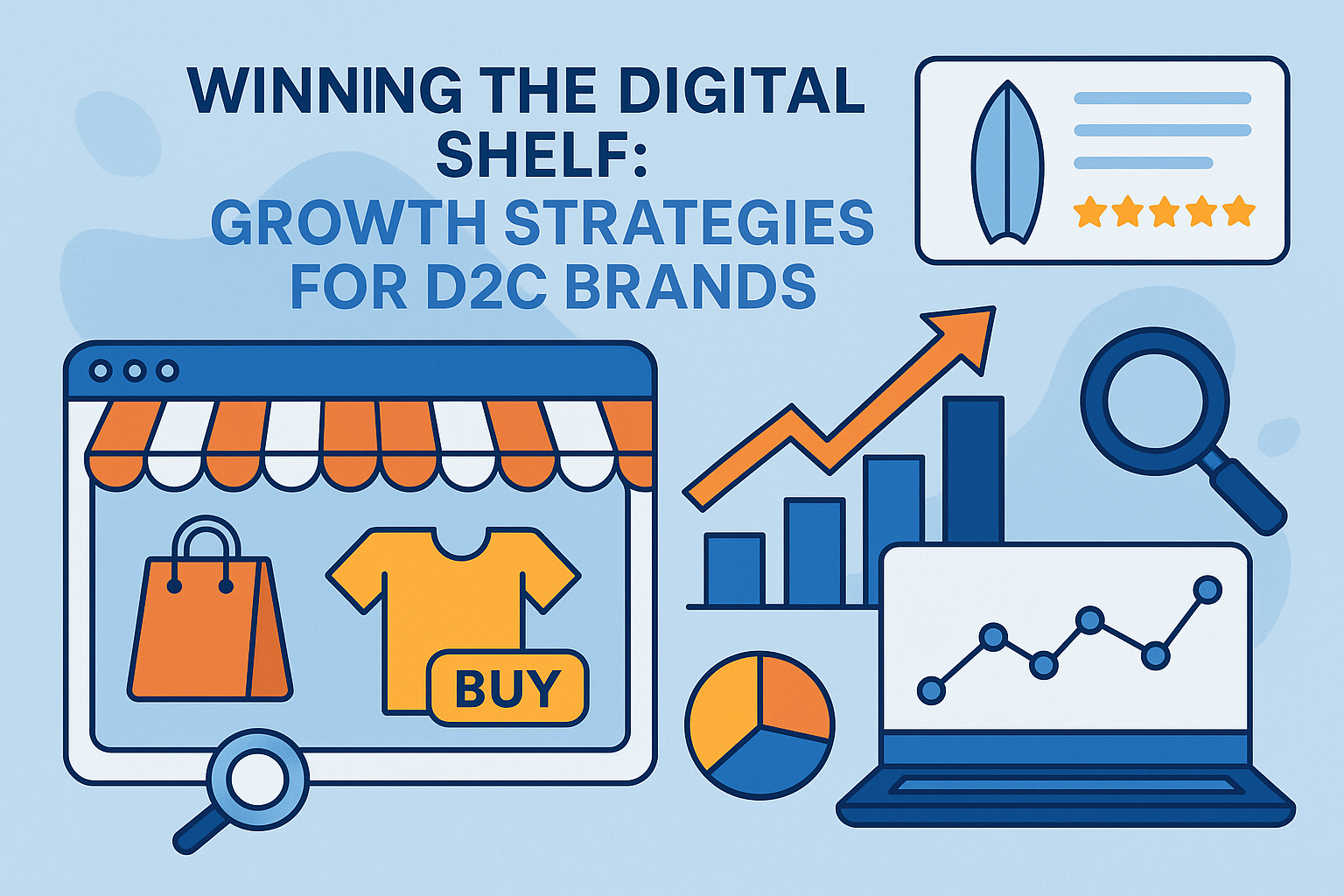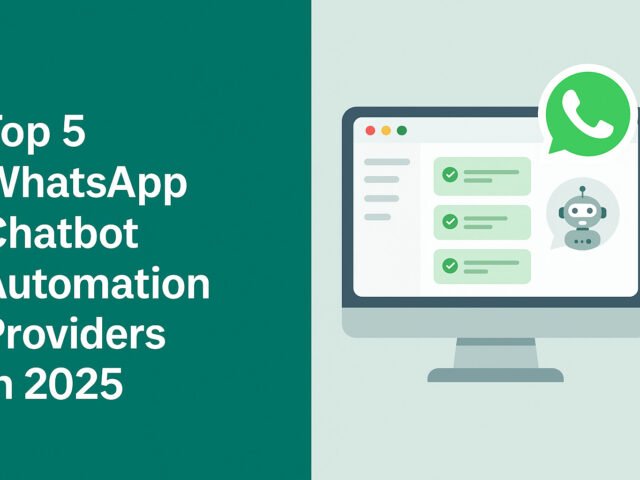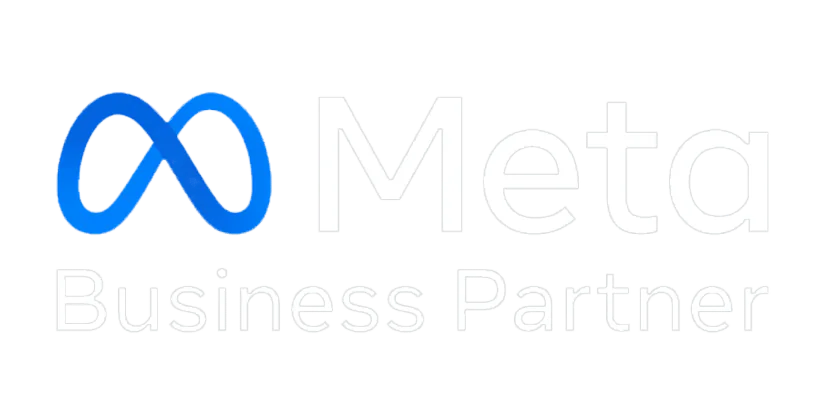Introduction
WhatsApp has become the go-to channel for D2C brands and eCommerce businesses. But as usage grows, Meta continues to refine its WhatsApp Business API pricing model. In July 2025, Meta announced new pricing changes that directly impact how brands plan customer engagement and marketing campaigns.
If you’re running WhatsApp for customer support, cart recovery, or promotions, understanding these updates is critical for managing ROI. Let’s break it down in simple terms.
WhatsApp Pricing 2025: What Changed?
Meta now categorizes conversations into different types, each with a specific charge per conversation (usually 24 hours long).
- Marketing Messages → Higher cost, as they’re considered promotional.
- Utility Messages → Lower cost, for transactional updates like order confirmations.
- Service/Authentication Messages → Special pricing for verification or support.
Example (India Market – July 2025):
- Marketing: ₹0.78 per conversation
- Utility: ₹0.11 per conversation
(Pricing varies by country and by partner platforms.)
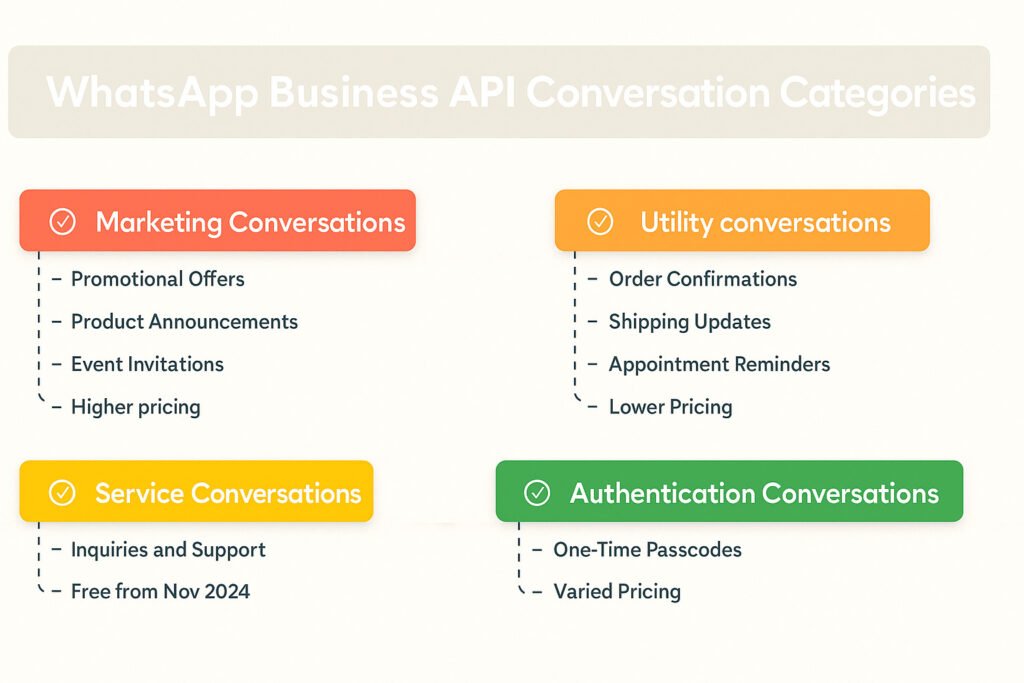
What This Means for Your Brand
- Marketing Costs Will Matter More
Every promotional campaign now directly impacts your bottom line. Smarter targeting is essential. - Utility Messages Remain Affordable
Order confirmations, shipping updates, and COD verifications remain inexpensive yet powerful. - Customer Opt-In Is Key
Unnecessary or unapproved campaigns can drive up costs while reducing engagement. - Automation Ensures Cost Optimization
AI chatbots and smart scheduling help ensure that every conversation delivers measurable value.
Strategies to Manage WhatsApp Costs in 2025
- Segment Campaigns: Personalize by customer intent instead of broadcasting to all.
- Leverage Utility Messages: Use low-cost transactional updates to re-engage customers.
- Optimize Message Timing: Send campaigns when customers are most active to increase conversions.
- Track ROI: Monitor which templates deliver actual sales and cut down on those that don’t.
- Choose the Right BSP: Work with a Business Solution Provider that offers transparent pricing and minimal markup.
Global Impact: Not Just India
While pricing numbers differ across regions, the overall pattern is consistent: marketing conversations cost more, utility conversations are cost-effective. D2C brands worldwide must adjust communication strategies to align with these updates.
Conclusion
Meta’s new WhatsApp pricing update is not a setback but a shift toward smarter engagement. By leveraging automation, personalization, and cost-effective transactional messaging, D2C brands can maintain strong ROI while managing costs.
In 2025, WhatsApp remains the most powerful channel for direct-to-consumer commerce. The brands that adapt quickly to the new pricing model will continue to win.
FAQs
Q1. What is the new WhatsApp pricing in India (2025)?
As of July 2025, marketing messages cost ₹0.78 per conversation, while utility messages cost ₹0.11 per conversation.
Q2. What counts as a marketing conversation?
Any promotional or sales-driven message, such as offers, discounts, or new product launches, falls under marketing.
Q3. What counts as a utility conversation?
Transactional updates such as order confirmations, delivery notifications, or COD verifications are considered utility messages.
Q4. How long does one WhatsApp conversation last?
Meta defines a conversation window as 24 hours from the first message sent by the business. All replies within this window are included in the same charge.
Q5. How can D2C brands reduce WhatsApp costs?
By segmenting campaigns, prioritizing utility messages, sending messages at the right time, and working with a transparent Business Solution Provider.

